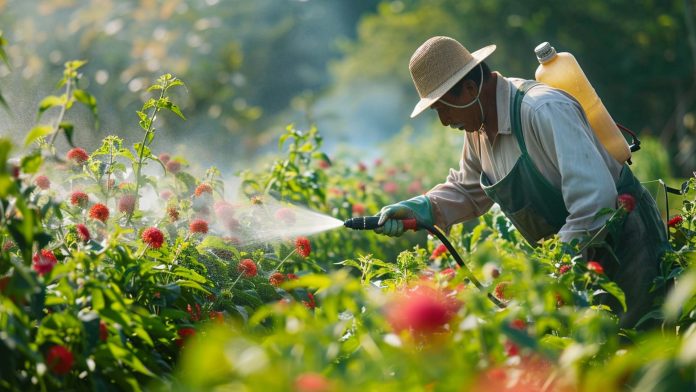A coalition of farm workers and civil society organisations has written to Agriculture Minister John Steenhuisen demanding the immediate ban of Terbufos.
The chemical, which is mainly used in the agricultural sector, made headlines in recent months following the death of 6 children in Naledi, Soweto after ingesting the pesticide in food-related incidents.
During an address to the nation in November, President Cyril Ramaphosa noted that at least 22 people have reportedly died from ingesting highly hazardous pesticides (HHPs) in recent months – of which Terbufos is one – in food-related incidents.
In the coalition’s 16-page letter of demand to the minister, the petitioners laid out a history of ongoing abject regulatory failure and commercial conflicts of interest in the governance of hazardous substances that have resulted in highly toxic, restricted chemicals ending up in domestic settings and informal food outlets.
“HHPs have historically had particularly devastating consequences for children.”
According to the African Centre for Biodiversity, experts published a paper showing that in one Cape Town mortuary, out of 50 children whose cause of death was suspected to be due to pesticides and for whom toxicological tests were conducted, 29 had died from Terbufos poisoning.
Four others had died from the organophosphates methamidophos and diazinon. Of these deaths, 42.6% were children under five years and 40.7% were adolescents between 15 and 18.
“It is not only death by poisoning that is of concern, but also the long-term consequences of organophosphate poisoning for child development.”
The Executive Director of the African Centre for Biodiversity, Kara Mackay, says there is increasing evidence that children surviving organophosphate poisoning suffer significant adverse neurodevelopmental impacts that will be lifelong.
Professor Leslie London from the University of Cape Town’s School of Public Health stressed that “the Minister of Agriculture must note the Constitutional imperative that the child’s best interests are of paramount importance in every matter concerning the child.”
The letter of demand also points out that even legal, registered use of these chemicals in the agriculture sector leads to loss of life and chronic health impacts for vulnerable peoples – particularly for farm workers and farm dwellers.
“We argue that the only way to stop further loss of life and long-term poisoning impacts is to remove these toxins from the market.”
Therefore, organisations further demand that the Minister ban all HHPs that are already banned in the European Union within six months. The Minister has been put on notice to implement these actions or face legal action within 21 days.
The African Centre for Biodiversity (ACB) addressed the letter in its name, as well as on behalf of a coalition of farm workers and civil society organisations including the Women on Farms Project (WFP), the Commercial Stevedoring, Agricultural and Allied Workers Union (CSAAWU), Groundwork, Friends of the Earth SA, Trust for Community Outreach and Education (TCOE); Khanyisa Education and Development Trust (Khanyisa), and several academic experts working in the public health sector for decades concerning pesticides.
READ MORE: Food-borne illnesses classified as a national disaster


